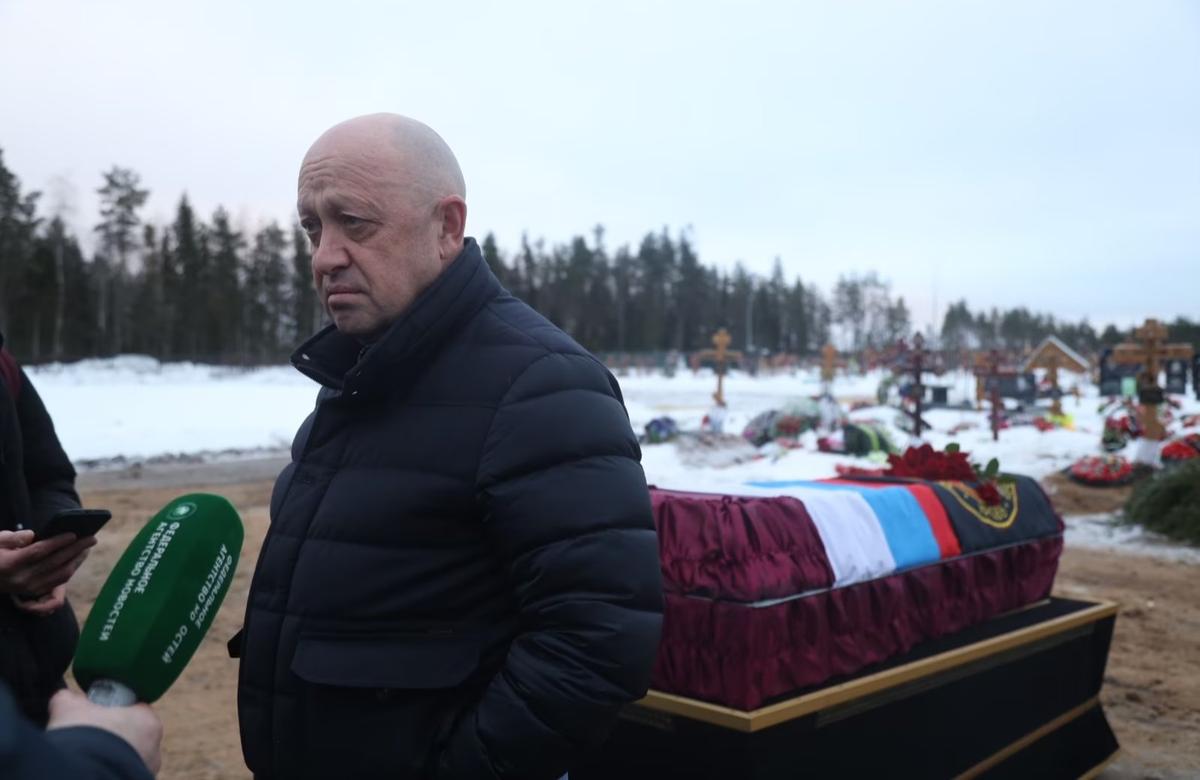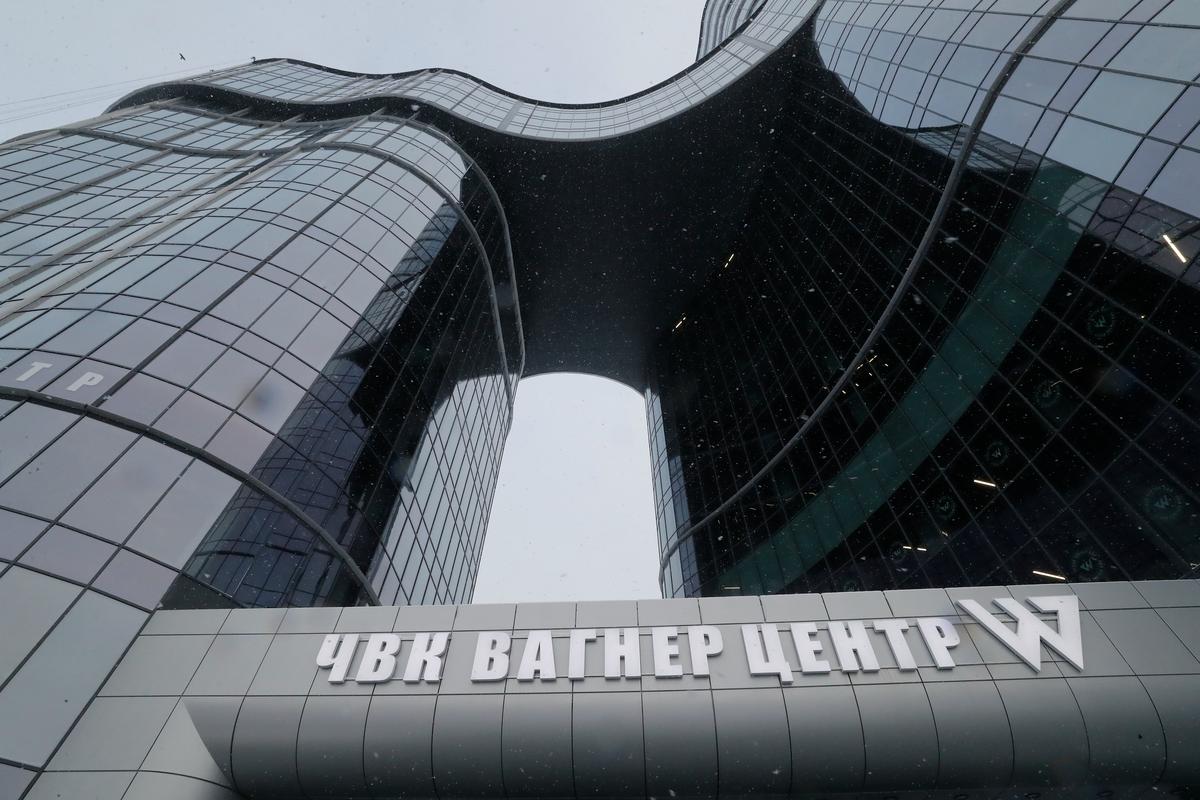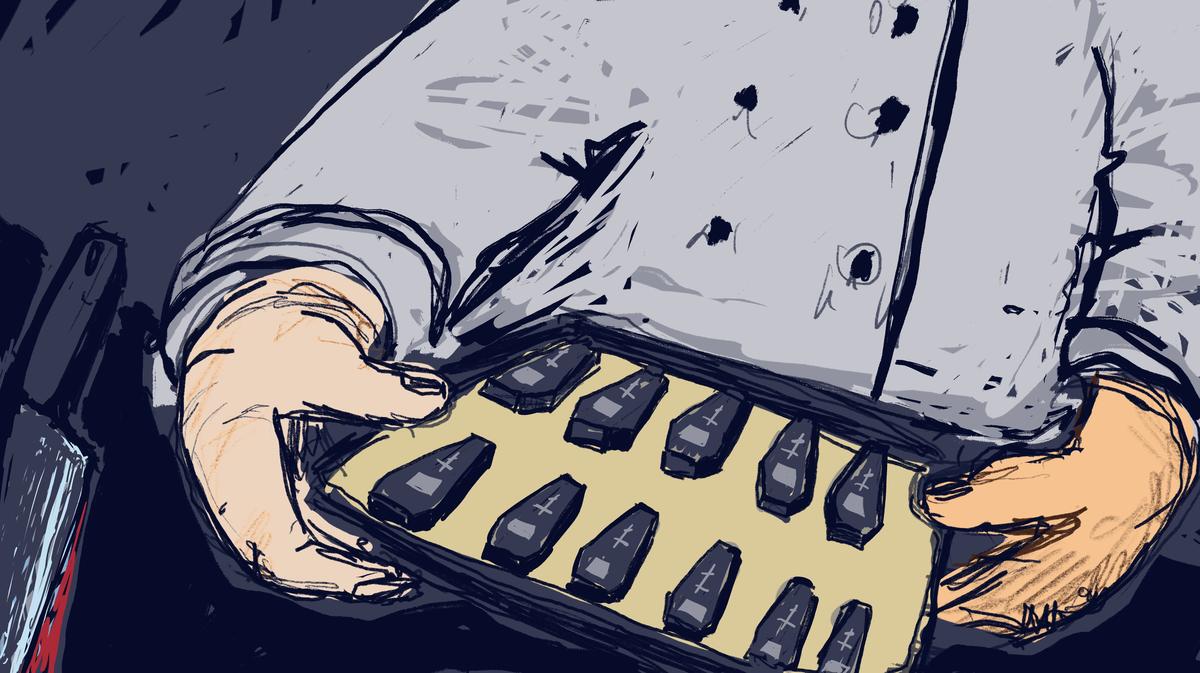A collapsing state
The war unleashed by the Kremlin against Ukraine seems to have led to a growing crisis of the Russian state.
The active participation of the Wagner Group, a private military company established by businessman Yevgeny Prigozhin, in Russian military operations in Ukraine, his aggressive rhetoric towards the leadership of Russia’s Defence Ministry, and his active public presence — all this is pointing to Russia becoming a failed state that has lost its monopoly on violence and basic governability.
It is especially symbolic that Prigozhin, a man with a criminal past, is setting free and arming thousands of convicts, including many violent criminals. Leaders of organised crime groups, drug dealers, convicted murderers and robbers have been released from prison and are now fighting on the frontline. When these people come back from the war, they will inevitably fuel a new wave of violence at home.
It is easy to see the current situation as a sign of the looming collapse of the state and impending trouble and unrest in Russia, which will turn into a battleground for criminal gangs and private military groups.
But we can also look at this from another perspective.

Evgeny Prigozhin at the cemetery in St. Petersburg. Photo by Sever.Realii
‘The new oil’
Prigozhin’s mobilisation of convicts can be seen as a direct continuation of the system of crony capitalism and rent exploitation that has established itself under Putin. Political scientist Vladimir Gelman calls this a system of “bad governance”.
Before the war, Russia’s resource-based economy depended mainly on the exploitation of the country’s oil and gas reserves. The government saw the Russian population largely as service personnel for the pipeline going to the West: any profits from this would only reach them in the form of rather meagre rations. The Russian leadership, and the businessmen entrusted by them to manage this flow of resources, could live their lives separately from the common folk, increasing their rations from time to time and encouraging people with the talk of past greatness and present superiority over those on the receiving end of the pipeline.
But with the start of the military adventure in Ukraine, human resource has suddenly become scarce and very much in demand for the Kremlin. The sclerotic state machine coped poorly with organising the initial mobilisation and extracting recruits through the military records system. And then, the government discovered another goldmine: prisons and camps. It is from here that the manpower that is fuelling the furnace of war is now flowing.
In Putin’s Russia, access to natural resources, to the “pipeline”, has always been in the hands of the government. The select few that were entrusted with the management of the pipelines were given economic and political rent, influence and power. The same can be observed in the case of Prigozhin.
It is no secret that it was Putin who granted him access to the prison pipeline and who made it possible to pardon convicts going to war in a classified decree.
Now, Prigozhin, who has been managing this resource in the interest of the state, is expecting political dividends for himself.

Wagner Center. The building of the headquarters of PMC "Wagner" in St. Petersburg. Photo: EPA-EFE/ANATOLY MALTSEV
Reputation cleansing
In Prigozhin’s unfolding personal struggle for full entry into Putin’s elite, however, he is hampered by his own reputation and the origin of his new fighters.
In the past, Prigozhin used to go on the attack against those who tied his name to the “troll factory” spreading misinformation online, or to the Wagner Group, in fear of being accused of illegal activity. But now he states on his Telegram channel that, through his actions, he is giving “a master class to anyone who wants to play on the patriotic field”. If you play your cards right, you can gain important symbolic capital and ascend in the Putin’s hierarchy of power and influence.
It is no coincidence that Prigozhin actively demands the honouring of deceased convict fighters in official rituals. Memorial plaques are appearing in schools they had gone to. Special ceremonies with flowers and songs are held, attended by local government officials. Sociologist Jeffrey Alexander wrote that these kinds of power performances are meant to change the order of collective perceptions, converting the profane into the sacred.
Former convicts are now heroes, and going to the front to free yourself from the torturous conditions of Russian prisons is a patriotic deed.
But Wagner Group fighters are not just glorified as combatants. Prigozhin is appealing to the government to officially wipe their past clean. He wants the Russian parliament to approve a new law that would ban “any negative publications and any criticism of special military operation participants, as well as information about their past offences”. Of course, the main beneficiary of this symbolic cleansing of social reputation and the sacralisation of new heroes is Prigozhin himself. It is he, and not those killed in the war, who will collect the patriotic dividends.
It is worth noting that Russian State Duma speaker Vladimir Volodin was sympathetic towards Prigozhin’s address, which essentially undermines the entire legal system, not just rehabilitating convicts, but also effectively nullifying the entire litigation procedure that led to their convictions. The state is Prigozhin’s client and needs to honour its obligations.
How long will Prigozhin’s rise last?
It all depends on his ability to continue to supply manpower to the Russian state. As long as he has this resource, his political expansion will continue. But when it runs out, it is likely that his political competitors will simply get rid of him.
Prigozhin’s meteoric rise during this war should not be interpreted as a sign of a crisis in the Russian state. This is just part of a new chapter in the history of Putin’s regime, which remains firmly in control and has now moved on from granting to a select few the right to utilise natural resources to giving them the right to utilise the population as well.
Join us in rebuilding Novaya Gazeta Europe
The Russian government has banned independent media. We were forced to leave our country in order to keep doing our job, telling our readers about what is going on Russia, Ukraine and Europe.
We will continue fighting against warfare and dictatorship. We believe that freedom of speech is the most efficient antidote against tyranny. Support us financially to help us fight for peace and freedom.
By clicking the Support button, you agree to the processing of your personal data.
To cancel a regular donation, please write to [email protected]

